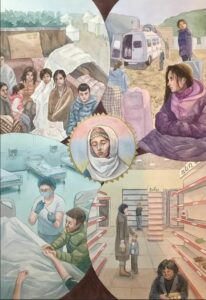By Edmond Y. Azadian
By all estimates, Turkey’s Prime Minister Recep Tayyip Erdogan is a smart politician and much of the credit of Turkey’s rise on the international stage goes to him personally and, to some extent, to his party. But his country’s history does not cooperate with him, since Turkey has too many skeletons (figuratively and literally) in its closet and they may jump out at any moment to embarrass the country and its leaders.
That is exactly what happened when the prime minister made a calculated move to apologize for the mass murders of Dersim during 1937-38 operations, when more than 100,00 Alevis and Kurds were massacred in the name of suppressing a so-called revolt.
Erdogan’s calculated political risk triggered incalculable reactions, which are still piling up. He is a master of hypocrisy and demagoguery; he can use anything and everything to pursue his political agenda.
But, it seems, this time, there is a boomerang effect that may cost Turkey dearly as compared to the anticipated political dividends.









